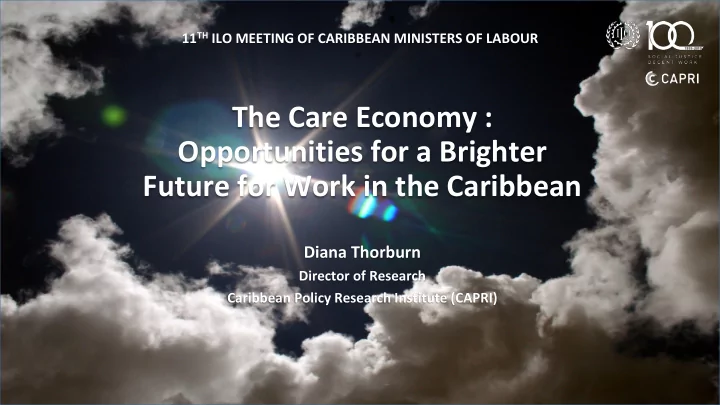

11 TH ILO MEETING OF CARIBBEAN MINISTERS OF LABOUR The Care Economy : Opportunities for a Brighter Future for Work in the Caribbean Diana Thorburn Director of Research Caribbean Policy Research Institute (CAPRI)
CAPRI’s study on the care economy UNPAID PRODUCTIVITY CARE WORK 2
CAPRI’s study on the care economy UNPAID PAID WORK WORK 3
CAPRI’s study on the care economy ? PAID UNPAID WORK WORK 4
What we know 5
What we know $? 6
Time use surveys & the care economy TIME USE SURVEY 7
Findings •Spend almost half the time spent by males on SNA production •Spend almost three times the amount of time males do on non-SNA production. •Spend a large proportion of their productive time on non-SNA production •Spend most of their time on personal care and maintenance, followed by household maintenance, management and shopping for own household •Spend more time on unpaid care work the more children and elderly in the household. •Spend twice the amount of time on unpaid community service/service others than men do. •Spend twice the amount of time, on average, as men do on learning. •Spend less time than men on social and cultural activities, but slightly more time than men on mass media •Spend less time than men engaged in work for establishments. 8
Supporting workers with care obligations 9
Supporting workers with care obligations 10
New & better quality jobs for careworkers Formalize existing care services through training and standards Encourage entrepreneurship in the care sector by providing grants and subsidized loans, guidelines, and training 11
Recommend
More recommend